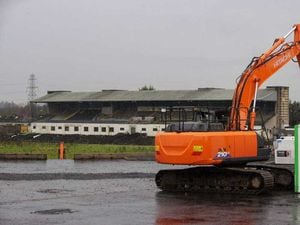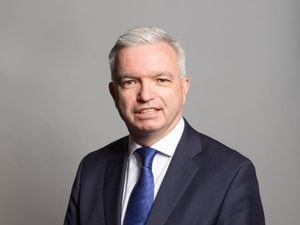Beefed-up powers for NI civil servants ‘must not undermine impartiality’
The head of the Northern Ireland Civil Service said he and his colleagues cannot afford to have their integrity called into question.

Government steps to hand more powers to civil servants in Northern Ireland must not undermine their impartiality, the head of the civil service has warned.
David Sterling, who has been running the region’s public services since powersharing imploded more than 600 days ago, said he welcomed moves to clarify decision-making powers.
Civil servants have been hamstrung in their efforts to keep departments running by their inability to take significant policy decisions.
A recent High Court judgment quashing a planning decision by a senior civil certain further reinforced their precarious position in the absence of elected ministers.
With Northern Ireland in a limbo between devolved governance and direct Westminster rule, Secretary of State Karen Bradley has pledged to bring forward legislation that will enhance civil servants’ ability to take decisions.
Mr Sterling welcomed Mrs Bradley’s initiative but he made clear it could not be viewed as a substitute for elected ministers.
Addressing a Brexit-themed event in Brussels, Mr Sterling said: “As civil servants we have been doing what we can over the past 18 months to manage the most pressing issues.
“But we are relatively powerless to deal with the most difficult problems. Only ministers can decide what are the best strategies and policies to make a difference, only ministers can set priorities for action, and only ministers can choose how best to allocate the scarce resources, especially financial resources, available to us.
“So, we need our executive back quickly to give us the direction we need to make Northern Ireland a better place to live and work for all our citizens.
“This is even more pressing following a Court of Appeal judgment at the start of July which has further reduced the scope for decision-making by civil servants.”

“We welcome greater clarity about our role, but I want to be very clear on this – we can never be a substitute for democratically elected and accountable ministers.
“Great care will need to be taken so that any new arrangements which may be put in place, no matter how temporary, do not compromise the impartiality of the civil service.
“We cannot afford to have our integrity called into question when we are called to serve a new executive.”
Ireland’s Deputy Prime Minister and Minister for Foreign Affairs and Trade, Simon Coveney, met the Secretary of State for Northern Ireland, Karen Bradley, in Dublin on Monday to discuss the lack of a functioning executive in Stormont.
Speaking after the meeting, Mr Coveney said: “I was glad to meet with the Secretary of State for Northern Ireland, Karen Bradley MP, as both Governments continue to work together as co-guarantors of the Good Friday Agreement, to address the ongoing absence of the powersharing Executive and Assembly in Northern Ireland.
“I reiterated to Secretary of State Bradley the Government’s deep concern at the continuing impasse with the devolved institutions, which she shares.
“We reaffirmed the strong determination of both Governments to get the devolved institutions up and running again and we discussed how that can now be most effectively advanced.
“I am hopeful that in the period ahead it will be possible to commence a political process to get beyond the current impasse and seek an agreement between the parties on operating the devolved
institutions again, consistent with the full and effective implementation of the Good Friday Agreement.
“I do not underestimate the way to go in achieving that, but I firmly believe that a resolution is possible and that the calls from across all sections of the community in Northern Ireland for
the devolved institutions to operate will be heeded.”
Likewise, Ms Bradley praised her meeting at Iveagh House in Dublin.
“Today the Tanaiste and I discussed the shared priority of the United Kingdom and Ireland’s Governments to see the rapid restoration of a fully functioning Executive in Northern Ireland.
“To work towards that we intend to work more intensively to establish a basis for moving into more formal political dialogue, in accordance with the three stranded approach.”
Ms Bradley added she was considering external facilitation to help move powersharing talks to the next stage.





